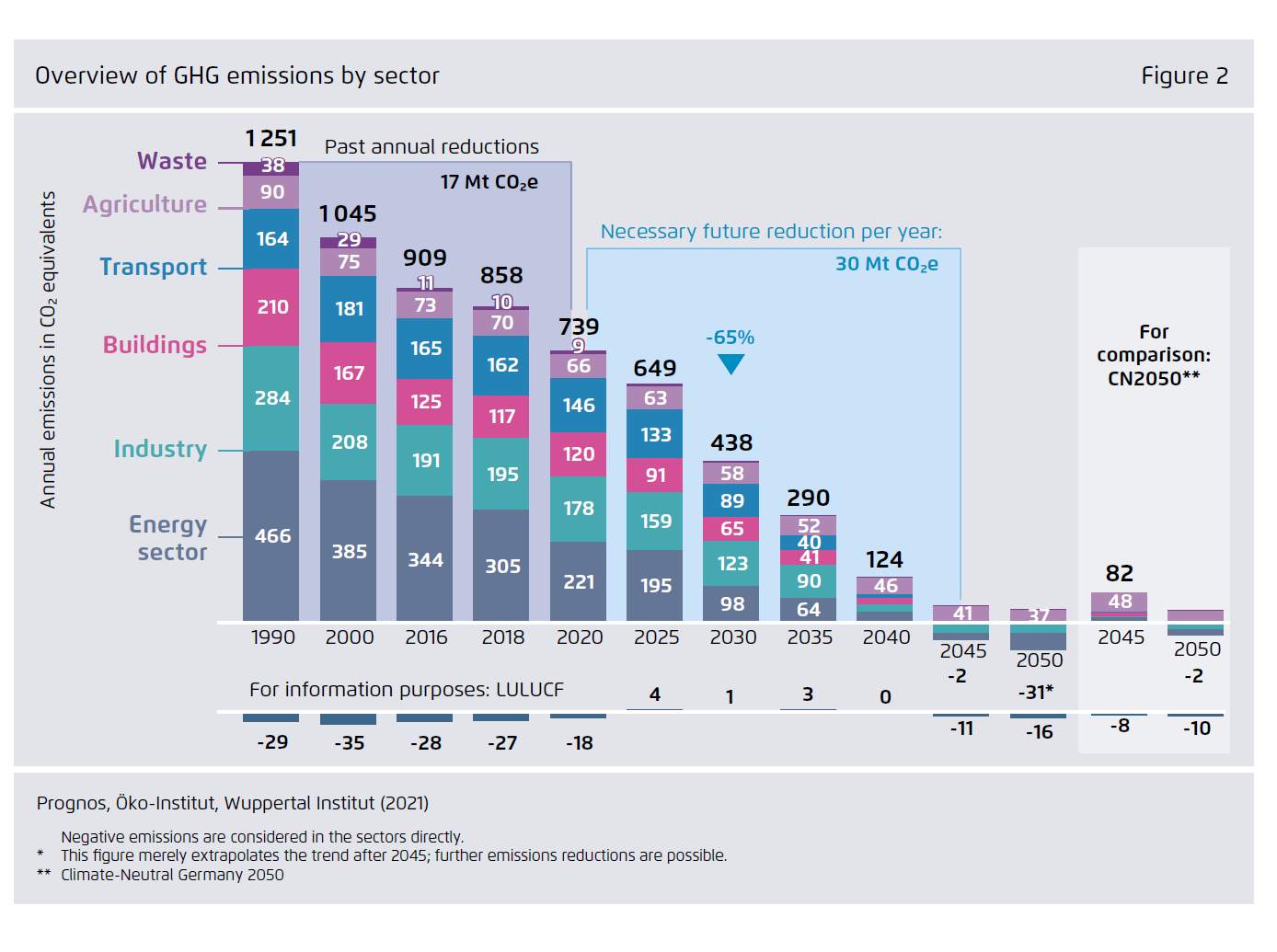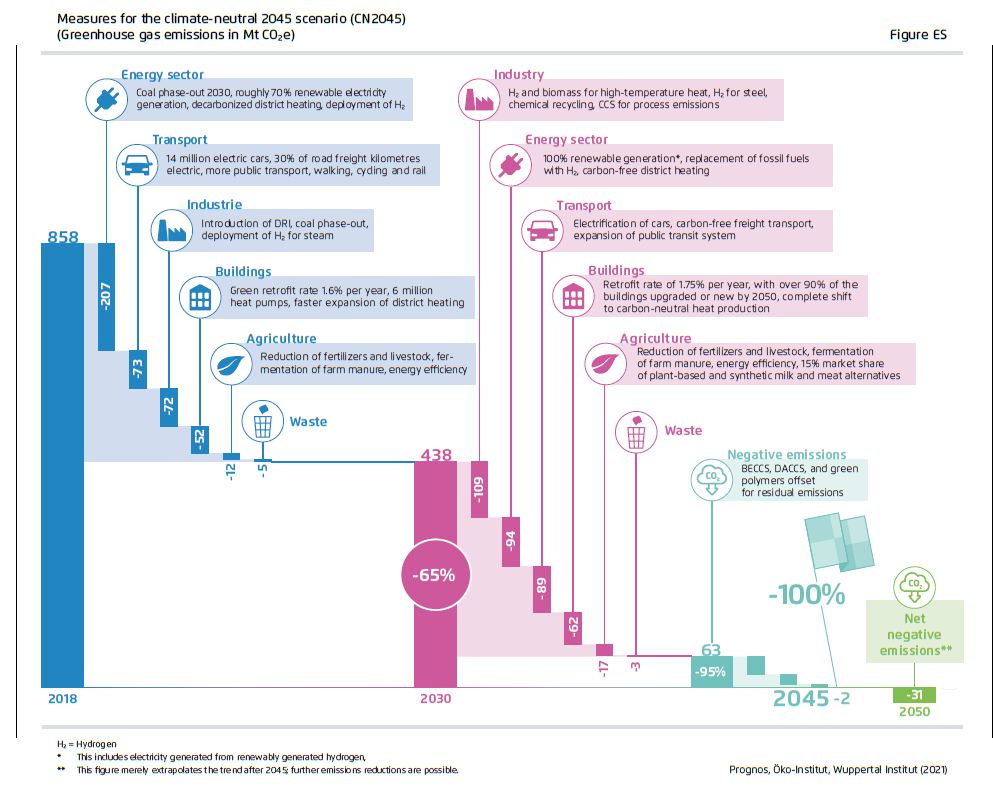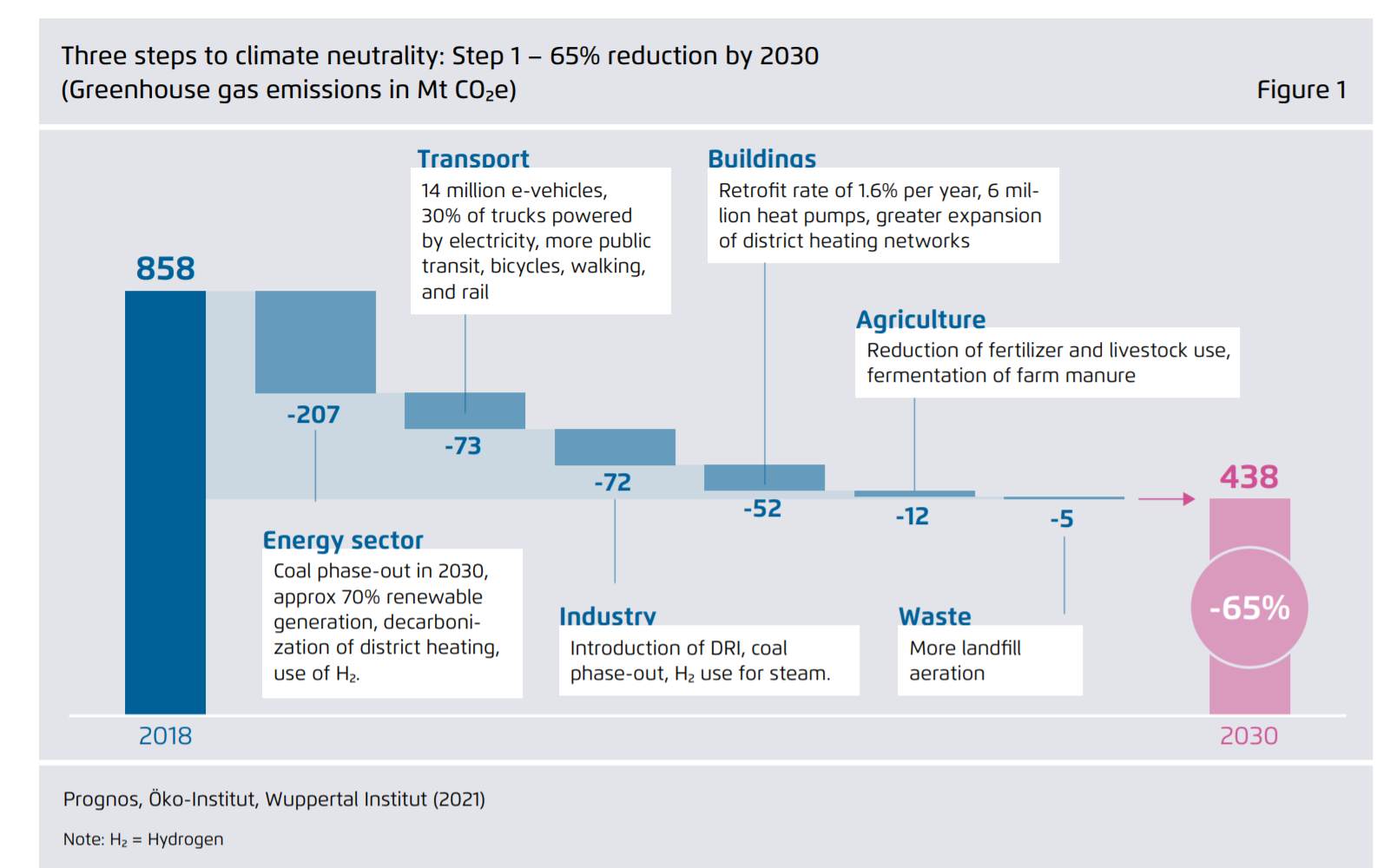Thanks to a historic ruling from Germany’s highest court last week, the country is stepping up on climate in a way that few saw coming. The court found that Germany’s climate targets were ‘backloading’ effort on climate to later years, essentially concluding that the country’s existing climate targets (a 55% cut by 2030, and climate neutrality by 2050) were badly insufficient. Since then, the government announced a new goal of 65% by 2030, 85-90% by 2040 and climate neutrality by 2045.
The move has created a significant shift in the rankings of countries setting the most ambitious targets on climate. Analysis from Carbon Brief’s Simon Evans, posted on Twitter, shows that Germany’s new target places it approximately second out of a ranking including the UK, the EU, US, Japan, Canada and Australia (which ranks last no matter which base year is used for comparison).
Here's the info in a table
Colour coding shows a scale from the best (dark green) to the worst (dark red) for each baseline pic.twitter.com/IhvlXGblVw
— Simon Evans (@DrSimEvans) May 6, 2021
Since the change, much attention has now turned to exactly what needs to be done to achieve these targets. Germany is one of the few countries in the world that splits out climate targets between each sector. This means the energy sector gets a specific target, the transport sector does too, and industry, buildings and so on. Several leaks of the country’s potential new sectoral targets have emerged showing the energy sector is the most likely to bear the heaviest burden of change up to 2030.
In fact, this shift in the energy sector has very significant consequences for electricity in Germany. The old targets relative to the new show the scale of the change:
By 2030, Germany’s energy sector needs to have emissions nearly 40% lower than the previous targets, under the potential new policies. A new analysis released yesterday by think tank Agora Energiewende highlights that, technologically, this is relatively feasible. “We follow the basic approach of the original study, charting a realistic path to climate neutrality that respects asset lifetime and investment-cycles while ensuring cost-effectiveness and public acceptance”.
The key tools for short-term emissions reductions – a massive phase-out of coal-fired power generation. This accounts for 207 of the 420 MTCO2-e of reductions required before 2030. The rest come from transport, industry, buildings and agriculture.
In the modelling, Germany is effectively coal free after 2030. Currently, Germany is targeting a coal phase-out date of 2038, a policy which has been strongly criticised by climate groups. To achieve climate neutrality before 2045, the modelling suggests a significant ramp up in wind and solar in the country. Capacity additions per year will need to be 19 gigawatts of PV, 3 gigawatts of offshore wind and 7 gigawatts of onshore between 2030 and 2045 to achieve the goal. The increase in solar here is particularly ambitious:
However, the report highlights that the rate of emissions reductions across the economy over the next 25 years could be roughly aligned with the reductions between 1990 and 2020:
 “So can we achieve net-zero emissions before 2050? The answer is an emphatic “yes”,” write Agora. “In doing so, Germany could leverage the global dynamics towards climate-neutrality particularly well and position itself as a lead market and technology provider. Whether we will be climate-neutral as early as 2045 is ultimately a question of our collective political will and our society’s ability to find creative solutions”.
“So can we achieve net-zero emissions before 2050? The answer is an emphatic “yes”,” write Agora. “In doing so, Germany could leverage the global dynamics towards climate-neutrality particularly well and position itself as a lead market and technology provider. Whether we will be climate-neutral as early as 2045 is ultimately a question of our collective political will and our society’s ability to find creative solutions”.
 Like most ambitious targets around the world, such as those in the UK and the US, there is a notable gap between projected emissions under current policies and the new climate targets – a gap that must be filled with new policy. In Germany, this will entail bringing forward the date of coal’s total phase-out from the grid, figuring out more sustainable ways of accelerating renewable growth in a country where it has been contested, and creating new policies to rapidly decarbonise the transport, industry and agriculture sectors.
Like most ambitious targets around the world, such as those in the UK and the US, there is a notable gap between projected emissions under current policies and the new climate targets – a gap that must be filled with new policy. In Germany, this will entail bringing forward the date of coal’s total phase-out from the grid, figuring out more sustainable ways of accelerating renewable growth in a country where it has been contested, and creating new policies to rapidly decarbonise the transport, industry and agriculture sectors.
It is a politically sensitive issue – Germany is due for an election this year and surprisingly, the Greens party is now out-polling Angela Merkel’s Christian Democratic Union (CDU). But the CDU chancellor Armin Laschet has been criticised for obstructionism on climate. In 2018, he warned that a coal phase-out by 2030 was “impossible”. Laschet is premier of one of Germany’s most coal mining intensive regions, North Rhine-Westphalia.
Germany’s climate targets are now aligned with policy, and the technological pathways are relatively well-researched and clear. But the political challenge will be enormous, and for this, there doesn’t seem to be any clear, simple answer.














